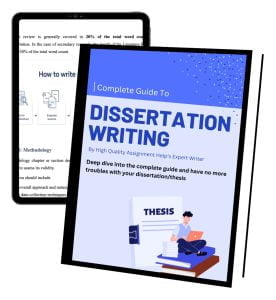The ultimate objective of early childhood education is to promote child development. These formative years lay the groundwork for a child’s lifelong learning journey, so it’s essential to make the most of them. Playful learning is one of the most effective and pleasurable strategies to support a child’s growth. This blog will examine the value of playful learning in early childhood education and examine how it affects different facets of a child’s development. Join us as we explore how play can mold children’s minds and lead them to a lifetime of study.

A revolutionary approach to teaching, The Power of Playful Learning in Early Years smoothly combines play and learning. Young minds are given the tools they need to grow crucial cognitive, social, physical, and emotional abilities while having fun. Children develop their problem-solving ability, social skills, physical coordination, and emotional intelligence through activities like creating, interacting, and imaginative play. Playful learning creates a solid foundation for lifetime learning and makes learning interesting and fun. It encourages curiosity, creativity, and resiliency, making sure that kids start their educational journey with a genuine love of learning and a strong foundation for success in the future.
1.Cognitive Development
The process by which people learn and hone their intellectual talents, such as thinking, problem-solving, and understanding, is known as cognitive development. It includes the development of cognitive abilities like language, perception, reasoning, and memory. It is possible for people to process information, make decisions, and adapt to their environment as they go from fundamental sensory experiences to higher-level cognitive functions during cognitive development. This important component of human development is most noticeable during childhood and adolescence, when people are laying the cognitive groundwork for their future learning, decision-making, and problem-solving capacities.
2.Social Development
Social development is the gradual acquisition of social skills that enable individuals to interact and communicate with others in their social environment. It entails having the ability to build and maintain relationships, comprehend social norms, cooperate, share, empathize, and resolve conflicts. The beginning of social development, which lasts the remainder of a person’s life and is affected by events and interactions, occurs in early infancy. Successful social development enhances overall well-being and societal cohesion by fostering healthy connections, emotional intelligence, and a feeling of community. Success on a personal, intellectual, and professional level depends on it.
3.Physical Development
Physical development is the expansion and improvement of a child’s physical aptitudes and motor competencies. It includes the growth of both fine motor abilities, which need more dexterous motions like gripping objects, drawing, and writing, as well as gross motor skills, which include bigger muscle groups and movements like crawling, walking, and running. In addition to enhancing a child’s physical abilities, this growth phase is essential for their overall health and well-being. It enables kids to discover their surroundings, partake in physical activity, and cultivate virtues like agility, balance, and coordination that are crucial for leading healthy lives.
4.Emotional Development
The steady maturity of a person’s capacity to recognize, comprehend, express, and effectively control their emotions is referred to as emotional development. Individuals gain coping skills for a range of emotional situations as well as the ability to manage their feelings and those of others. In order to establish good connections, increase self-esteem, and promote resilience in the face of adversity, emotional development is essential. It changes during the course of a person’s lifetime but is especially important in the early years when basic emotional abilities are developed. This has an impact on a person’s emotional health and social interactions for the rest of their life.


Conclusion
When it comes to comprehending and analyzing economic data, generating forecasts, and influencing policy choices, econometrics—often referred to as the union of economics and statistics—plays a crucial role. An Australian Bachelor’s degree in this subject provides access to a plethora of chances and information for those who want to dig into the complex area of econometrics. We will examine the significance of earning an Australian Bachelor’s degree in econometrics and how it may open the door to a bright future in this in-depth guide. We will also discuss the value of earning a graduate certificate in economics, which is an important step in both your academic and professional careers.
Why Choose an Australian Bachelor’s Degree in Econometrics?
Australian institutions have a remarkable reputation for providing top-notch instruction and leading-edge econometrics research. Making the decision to pursue a Bachelor’s degree in econometrics Down Under may have a big influence on your future in a number of different ways.


- World-Class Education: Australia’s educational system is well known for having high standards. With an Australian Bachelor’s degree in econometrics, you can be sure that you’ll obtain a thorough education that will give you the know-how and abilities you need to succeed in this specialized profession.
- Diverse Curriculum: In Australia, the curriculum for an econometrics degree is intended to be comprehensive. It covers a wide range of topics, including data analysis, mathematical modeling, economic theory, and statistical approaches. You are able to gain a comprehensive grasp of econometrics thanks to this wide exposure.
- Experienced Faculty: The faculty of Australian institutions is well-versed and diverse. Professors and teachers frequently work as practitioners in the area, giving students access to practical knowledge and experience.
- Advanced Research Opportunities: Australia provides a favorable setting for econometrics study. Due to the nation’s focus on innovation and research, you have the opportunity to work on cutting-edge initiatives and support the academic community.
- Global Recognition: An entity is said to be widely recognized and accepted on a worldwide level if they are an institution, a brand, or an individual. It means that the organization has gained respect and a reputation that reaches beyond a specific geographic area. Persistent dedication to quality, excellence, and a significant worldwide presence are frequently necessary for gaining a reputation on a global scale. It demonstrates the organization’s power and impact on the world stage.
- Strong Career Prospects: Bachelor’s degree holders in econometrics are in great demand across a range of businesses. Data analysis and modeling are only two examples of transferrable talents that may be used in a variety of careers, including those in consulting, government, and finance.
The Role of a Graduate Certificate in Economics
After earning your econometrics bachelor’s degree, you might want to pursue your education and develop your talents. An economics graduate certificate can be useful in this situation. You may focus on a specific topic of economics with this quick yet rigorous program, making you a sought-after authority in your industry.
A graduate certificate in economics offers the following benefits:


- Specialization: Within the discipline of economics, you might concentrate on a particular topic, such as financial economics, global commerce, or behavioral economics. Your employment chances in your chosen specialty may be greatly improved by this specialization.
- Advanced Skills: With the program’s advanced skills and knowledge, you may confidently take on difficult economic problems and difficulties.
- Short Duration: A graduate certificate is a realistic choice for workers looking to upskill without committing to significant study because it often takes less time to complete than a full master’s degree.
- Networking Opportunities: You’ll get the chance to network professionally by getting to know business leaders, academics, and other students.
- Flexible Learning: Numerous educational institutions provide flexible study alternatives that let you mix your studies with other obligations.
The Verdict: Pursuing an Australian Bachelor’s Degree in Econometrics
In conclusion, students who are enthusiastic about economics, data analysis, and predictive modeling might consider earning an Australian Bachelor’s degree in econometrics. It provides a top-notch education, a broad curriculum, and chances for research and professional advancement. Consider obtaining a graduate certificate in economics to expand your knowledge and boost your profession. This will enable you to focus on a particular field of economics.
For Help with Your Econometrics Assignments
Do you need help with your econometrics assignments or are you having trouble? We at Assignment Unlocked are available to help you. With our econometrics assignment assistance, you can complete challenging work with ease and achieve academic success. To advance your econometrics career, get in touch with us right away!
The significance of earning an Australian Bachelor’s degree in econometrics and how it might influence your academic and professional career have been discussed in this blog. We’ve also emphasized the advantages of a graduate degree in economics and how it may help you specialize in the field of economics of your choice. Don’t be afraid to contact Assignment Unlocked for knowledgeable support if you require help with your econometrics assignments. Here is where your path to econometrics success begins!






